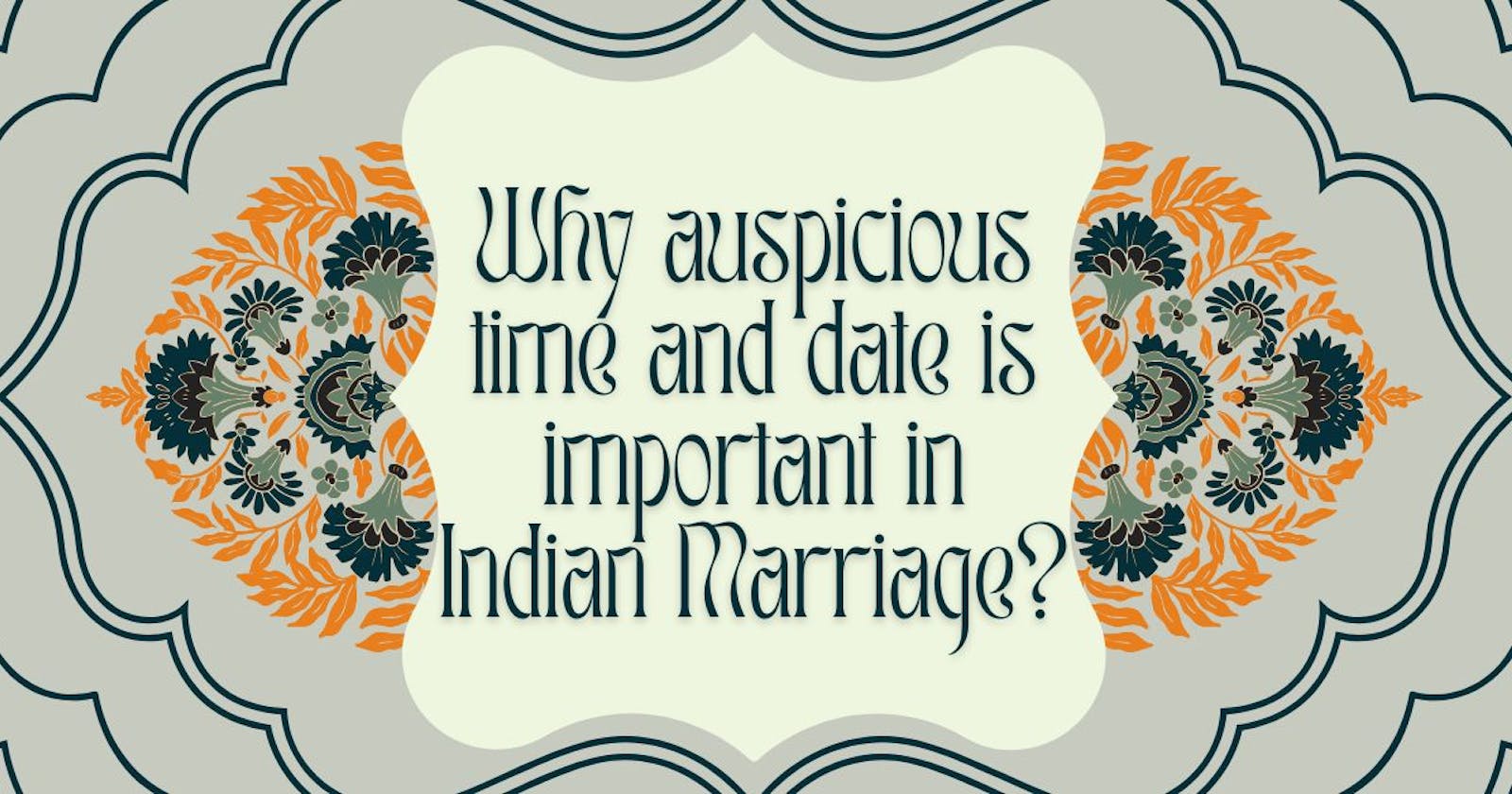Table of contents
No headings in the article.
In India, marriages are considered sacred relationships. The wedding day is the most auspicious day for Indians, and they celebrate this event as a festival. Indian Marriage is completely connected with their tradition and culture and every aspect of the wedding, including the ceremonies and the bride's entry into her husband's home, is timed according to an auspicious muhurta, therefore it is essential that the couple chose an auspicious wedding date.
Especially, in Hinduism, as astrology plays an important role in this religion. Auspicious day and time are considered as the lucky time periods for the big day wedding in people's lives, as it guarantees a couple will get married at the most fortunate moment. It is decided by taking into account all the potential significant events in a person's lifetime. To determine Shubh Muhurat for marital rituals, there is no rigid method.
Muhurat or an auspicious time refers to the moment when the wedding ceremonies can be performed and which is triggered as a result of Vedic mantras. The better mantras are recited, the more powerful their effect. Hence, the best and most ideal results can be anticipated when a ceremony is performed along with excellent Vedic mantra recitation.
In order to decide on an auspicious date and time for marriage thorough calculation and analysis of several viewpoints are required and not everyone is capable of making such exact calculations, only a priest can do it. While selecting Shubh Muhurat, some important factors priests keep in mind. The Priest chooses the most fortunate day and time to conduct the marriage ceremony based on the bride and groom's horoscopes. The calculation, which derives from Hindu Vedic Astrology, is crucial in order to prevent the evil eye from being present during the wedding. Because of contemporary culture, some couples pick their own wedding date but continue the custom of figuring out a Muhurtham time to start the rites.
The Priest decides the most fortunate day and time from Hindu Vedic Astrology to conduct the marriage ceremony based on the bride and groom's horoscopes. This is the best way to prevent any unexpected happenings during the wedding. Before getting married, the bride and groom must find a compatible partner through horoscope matching. It is one of the elements that determine whether the couple's horoscopes are compatible. Given that planets and other celestial bodies have an impact on people's lives as well, the Nakshatra is one of the ruling variables in marriage. By ensuring that the celestial bodies complement one another, Kundli matching aids in the development of a relationship that is centered on peace, happiness, and harmony.
The priests calculate the shubh muhurat today according to the Hindu calendar. It is the optimum time frame for conducting an appropriate event to ensure a perky, fortunate, and trouble-free affair. It is crucial to contact a qualified astrologer or priest to determine the ideal timings for family gatherings, as some days are known to be lucky and if the wedding takes place on that lucky day then it is very good for both partners.
Horoscopes of the boy and the girl are examined for the best wedding dates when the matchmaking process is finished and acceptable compatibility is discovered. The astrological positions of the bride and groom with respect to the sun and moon are taken into consideration while choosing a date. In India, marriage involves not only the joining of two individuals but also of two families, whose lives are affected when they come together to witness a beautiful holy marriage. Marriage-related horoscope matching also predicts your potential happiness with your partner and their family. Given how ingrained Indian families are, performing a kundali analysis for marriage—which foretells so many important aspects of life—becomes a necessary step before selecting a spouse.
In some Indian weddings, the bride has been brought to the mandap and covered by the Terasalla which is a curtain that stops the groom from seeing the bride before the Shubh Muhurat. The couple's privacy screen is then removed, signifying their marriage to one another after having previously been independent individuals. The Hindu wedding traditions begin when the curtain is drawn, showing the Bride and the Groom to one another.
Conclusively it can be said that not only weddings but a new business should be started, contracts should be signed, and even property-related dealings should take into account the scientific influence of auspicious times and dates. This is similar to how we are accustomed to considering muhurat for special occasions like Griha Prabesh, Engagements, and Weddings, among others.
